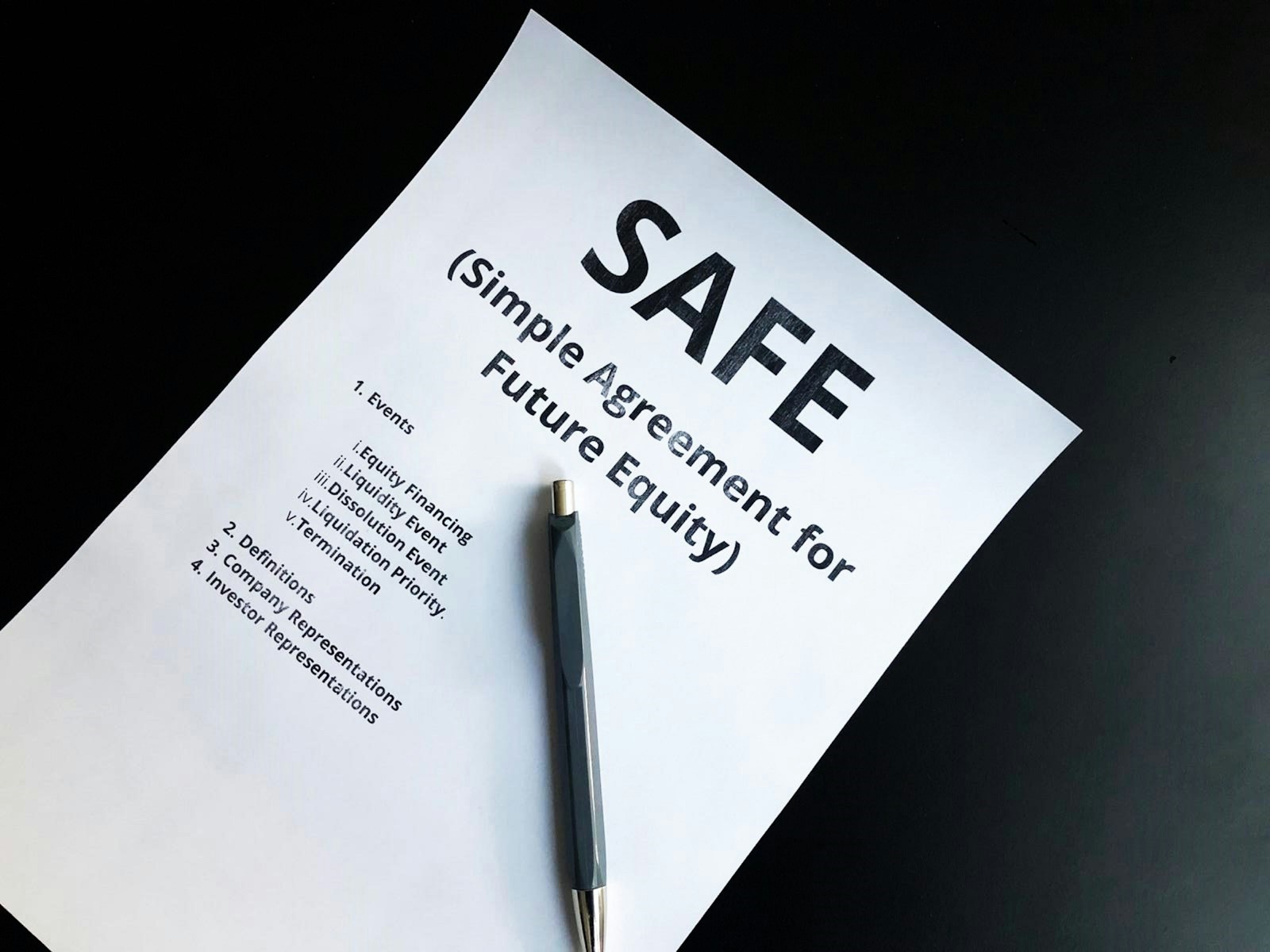Can Indian AIFs Invest in SAFE Notes in Singapore? A Legal Analysis under SEBI and RBI Frameworks (July 2025)

Introduction
With India’s start-up ecosystem expanding its global footprint and investors increasingly eyeing early-stage ventures overseas, an important legal question has arisen: Can an Indian Alternative Investment Fund (AIF), specifically a Category I AIF, invest in SAFE (Simple Agreement for Future Equity) Note issued by a Singapore-based company?
As of July 2025, the regulatory landscape governing cross-border investments by Indian AIFs—particularly in hybrid instruments like SAFE Notes—remains nuanced. This article explores the legal permissibility and compliance obligations under the SEBI (Alternative Investment Funds) Regulations, 2012, and the Foreign Exchange Management Act (FEMA), 1999, as amended by the Overseas Investment Rules and Regulations, 2022.
Understanding the SAFE Note
A SAFE (Simple Agreement for Future Equity) is a popular equity-linked instrument used by start-ups globally, especially in jurisdictions like the U.S. and Singapore. While it does not constitute immediate equity, a SAFE entitles the investor to receive equity in a future round, usually upon a triggering event like a priced equity financing.
Legally, a SAFE is a forward contract or convertible security. However, under Indian law—particularly the RBI’s ODI regime—the classification of such instruments remains uncertain.
Regulatory Framework for Overseas Investments by AIFs
1. SEBI Regulations: Under the SEBI AIF Regulations, 2012, and the relevant SEBI circulars:
- Category I AIFs are permitted to invest up to 25% of their investible corpus in overseas investments, subject to SEBI and RBI approvals.
- The overseas target entity must be a company incorporated in a jurisdiction whose securities market regulator is a signatory to the IOSCO Multilateral MOU or with which SEBI has bilateral cooperation arrangements.
- The investment must be disclosed in the Placement Memorandum (PPM).
- The AIF must route such investments through an SEBI-registered custodian and report all transactions to SEBI.
- Notably, SEBI has not restricted Category I AIFs from investing in convertible instruments, but it expects funds to maintain transparency regarding risk, valuation methodology, and exit strategy.
2. RBI ODI Framework (FEMA Regulations, 2022)
The Reserve Bank of India governs outbound investments under the Foreign Exchange Management (Overseas Investment) Rules, 2022 and accompanying Regulations and Directions. As per this framework:
- Indian AIFs are permitted to invest in “foreign entities” engaged in bona fide business activity.
- Investments must be in the form of equity capital, compulsorily convertible preference shares (CCPS), or CCDs—collectively termed “equity instruments.”
- Investment in instruments that do not mandatorily convert into equity may not qualify as “Overseas Direct Investment” (ODI) and hence may be restricted.
This raises a crucial question: Does a SAFE Note qualify as an equity instrument under the RBI framework?
The Legal Grey Zone: Are SAFE Notes “Equity Instruments”?
SAFE Notes are not compulsorily convertible at issuance. Their conversion depends on future events (e.g., a priced funding round). As such, they may not meet the RBI’s narrow definition of “equity instrument” unless:
- The SAFE is structured with an unconditional conversion mechanism, or
- It is supported by a legal opinion validating its treatment as equivalent to CCPS or CCDs.
Thus, absent explicit RBI clarification, investing in standard SAFE Notes by Indian AIFs may fall in a regulatory grey area, potentially requiring prior RBI approval or at least compliance validation.
Conditions for Permissibility
For an Indian Category I AIF to invest in a SAFE Note issued by a Singapore company as of July 2025, the following conditions must be met:
| Requirement | Status |
| AIF registered with SEBI as Category I | ✅ Required |
| Investment disclosed in PPM | ✅ Mandatory |
| Investment routed through SEBI-registered custodian | ✅ Mandatory |
| SEBI approval for overseas investment | ✅ Required via custodian reporting |
| Target company in IOSCO-compliant jurisdiction (e.g., Singapore) | ✅ Permitted |
| RBI ODI compliance | ✅ Required |
| Classification of SAFE as equity instrument | ❗ Ambiguous – legal opinion recommended |
| Investment limit ≤ 25% of corpus | ✅ Required |
Practical Challenges and Solutions
Challenge 1: SAFE Note Classification: Since SAFE Notes are not mandatory convertibles, they may not qualify under RBI’s permitted instruments.
Solution:
- Structure the SAFE with a clearly defined conversion trigger and fixed valuation cap.
- Obtain a legal opinion and share it with the custodian and RBI.
- Alternatively, structure the investment as CCDs or CCPS with SAFE-like economics.
Challenge 2: Regulatory Approvals and Timelines: Both SEBI and RBI processes can be time-consuming, especially where instrument classification is unclear.
Solution:
- Begin with an advance RBI clarification request through the Authorised Dealer (custodian bank).
- Use precedent-based submissions if similar investments have been approved earlier.
Challenge 3: Tax and Exit Considerations: SAFE Notes may face capital gains taxation ambiguities, and their conversion into equity may be challenged under FEMA.
Solution:
- Ensure proper documentation of valuation, timelines, and equity entitlement.
- Consider obtaining a tax ruling or at least an internal opinion on exit taxation.
Conclusion
As of July 2025, while there is no blanket prohibition on Indian Category I AIFs investing in SAFE Notes issued in Singapore, such investments are conditional and compliance-intensive.
The key challenge lies in ensuring that the SAFE Note qualifies as an “equity instrument” under RBI’s ODI rules, or obtaining prior RBI approval where it does not. With robust structuring, disclosure, and legal documentation, Indian AIFs can effectively participate in Singapore’s thriving start-up ecosystem via instruments like SAFEs.
Given the evolving regulatory stance and India’s growing interest in cross-border VC activity, a case-by-case legal analysis and coordination with custodians, SEBI, and RBI is strongly advised before proceeding with such investments.
Authored By – Jidesh Kumar and Nivedita Bhardwaj
By entering the email address you agree to our Privacy Policy.